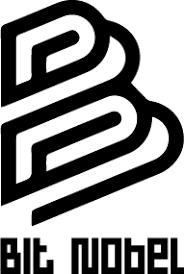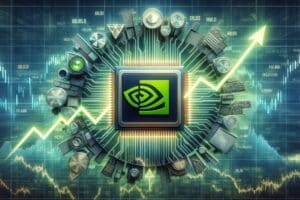The American graphics processing company, Nvidia, often associated with the topic of Bitcoin and crypto mining due to the inappropriate use by retail customers on the video cards it produces, has been making headlines again in recent days.
The speaker and member of the United States House of Representatives, Nancy Pelosi, has completed a purchase of call options worth 5 million dollars on the stock of the technology company, anticipating possible rallies in the coming year.
Her record purchase has sparked a heavy debate about the conflict of interest of politicians in their trading activities: Pelosi had indeed traded Nvidia in 2022 while pushing for a semiconductor bill known as the CHIPS ACT that would have greatly benefited the graphics card company in the stock market.
After a year of stopping trading Nvidia, Pelosi is now back in the game ready to ride the next price increase while having to face accusations from her political detractors.
Let’s see all the details below.
Nancy Pelosi buys call options on Nvidia worth 5 million dollars and sparks a debate on the concept of free trade
Nancy Pelosi, the first American woman to have held the role of Speaker of the United States House of Representatives, recently purchased call options worth $5 million on Nvidia, a technology company known by many for its involvement in Bitcoin and crypto mining activities.
A call option is a tool belonging to the derivatives market in which the buyer reserves the right, but not the obligation, to purchase a stock in the future at a fixed price, paying a premium to “insure” this privilege.
This allows you to trade a stock while limiting losses to a fixed value (the premium price) and at the same time taking advantage of potential market increases. All options have a predetermined expiration date.
Now, leaving aside the technicalities and the advantages offered by this financial instrument, it is interesting to note how the news of Nvidia’s acquisition by the US politician has sparked a wide debate on the fairness and transparency of the concept of free trade.
Although there is no law in the United States that prohibits members of the House from trading stocks and other products, Pelosi had already attracted the anger of her detractors in the past due to an alleged conflict of interest between some legislative proposals she put forward and her speculation strategy.
In 2022, while Nvidia stock outperformed the Bitcoin and crypto mining market, it was discovered that Pelosi had invested millions of dollars in the technology company while she was about to push a law known as the CHIPS ACT in Parliament.
His calls had arrived a few days before the law was passed favoring the production and sale of semiconductors in the country, giving Nvidia and other similar companies an incredible commercial advantage.
In the face of all this, his political opponents have been outraged and have asked the Government to oppose this blatant conflict of interest.
Even more, the growing demands to ban members of Congress and their spouses from trading have focused on Pelosi with a bill that uses her name as an acronym: the PELOSI Act.
In her response, Nancy Pelosi had sold all of her open positions just as the debates were intensifying: it is also interesting to note how the closing of the transactions occurred almost instantaneously in response to the protests of other politicians, despite the fact that it can take up to two weeks to conclude a negotiation in the options market.
Now, after calming the waters for about a year, losing potential profits of 8 million dollars, the female member of the Chamber is back in the game by purchasing together with her husband 50 call options, with a total value of 5 million dollars, with a strike price of 120 dollars and expiration in December 2024.
The purchase could be related to secret information known to the couple, which could push the stock price up in the coming months.
It will be very interesting to see how the Republicans will react to a new hypothetical case of conflicting insider trading with the interests of the House, and if action will be taken against Pelosi.
As reported by Congresstrading, who revealed the details of the operation on December 22nd:
“Pelosi bet millions on $NVDA in November using call options. Using a deceptive tactic, she purposely revealed it on the Friday before Christmas to avoid media coverage.”
Nvidia: the stock associated with Bitcoin and crypto mining prepares for a new ATH
The significant purchase of call options on Nvidia by the US politician highlights the bullish outlook of the stock, often associated (sometimes erroneously) with the Bitcoin and crypto mining theme.
The graphics cards produced by the Santa Clara company have been extensively used in the past by the retail public to participate in Ethereum mining via GPU, while now this practice has been abandoned due to the transition of the protocol from PoW to PoS.
Since the beginning of the year, Nvidia’s stocks have not felt the absence of miners and have taken off in the market, marking a +243% increase.
In particular, Nvidia has become one of the new members of the $1 trillion market capitalization club in the last year, attracting more and more attention thanks to the company’s role in the growth of artificial intelligence.
In the last 5 years, however, the stock has grown by 1,448%, becoming one of the winning horses of the US stock market along with Microsoft, Apple, Alphabet, and Tesla.
Currently, the stock is trading at a premarket price on Nasdaq of $493.49, very close to the previous all-time high of $505.48 in November.
Given the increasingly growing enthusiasm within speculative markets, and considering the forecasts of a monetary stimulus increase by the FED in 2024 with an interest rate cut, it is very likely that the stock will reach a new ATH in the coming months.
If it were to break the psychological threshold of $500 with a weekly close above that figure, we could likely inaugurate a new upward trend for Nvidia.
On the contrary, the hopes of the bears become more concrete only with a downward break of $400, which is a discounted price of 19% compared to now.


 (@PelosiTracker_)
(@PelosiTracker_) 




